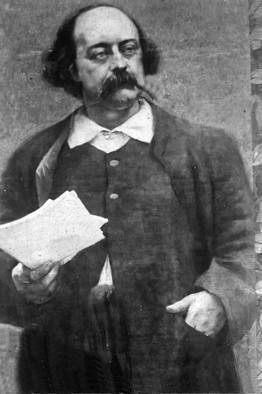Gustave Flaubert (Gustave Flaubert)

Gustave Flaubert was born on 12 December 1821, in Rouen, in the Seine-Maritime department of Upper Normandy, in northern France. His first finished work was November, a novella, which was completed in 1842. In September 1849, Gustave Flaubert completed the first version of a novel, The Temptation of Saint Anthony. He read the novel aloud to Louis Bouilhet and Maxime Du Camp over the course of four days, not allowing them to interrupt or give any opinions. At the end of the reading, his friends told him to throw the manuscript in the fire, suggesting instead that he focus on day-to-day life rather than fantastic subjects. In 1850, after returning from Egypt, Flaubert began work on Madame Bovary. The novel, which took five years to write, was serialized in the Revue de Paris in 1856. The government brought an action against the publisher and author on the charge of immorality, which was heard during the following year, but both were acquitted. When Madame Bovary appeared in book form, it met with a warm reception. In 1858, Flaubert traveled to Carthage to gather material for his next novel, Salammbô. The novel was completed in 1862 after four years of work. Drawing on his youth, Flaubert next wrote L’Éducation sentimentale (Sentimental Education), an effort that took seven years. This was his last complete novel, published in the year 1869.
Gustave Flaubert wrote an unsuccessful drama, Le Candidat, and published a reworked version of The Temptation of Saint Anthony, portions of which had been published as early as 1857. He devoted much of his time to an ongoing project, Les Deux Cloportes (The Two Woodlice), which later became Bouvard et Pécuchet, breaking from the obsessive project only to write the Three Tales in 1877. This book comprised three stories: Un Cœur simple (A Simple Heart), La Légende de Saint-Julien l’Hospitalier (The Legend of St. Julian the Hospitaller), and Hérodias (Herodias). After the publication of the stories, he spent the remainder of his life toiling on the unfinished Bouvard et Pécuchet, which was posthumously printed in 1881. It was a grand satire on the futility of human knowledge and the ubiquity of mediocrity. He believed the work to be his masterpiece, though the posthumous version received lukewarm reviews. Flaubert was a prolific letter writer, and his letters have been collected in several publications. At the time of his death, he may have been working on a further historical novel, based on the Battle of Thermopylae.
Born
- December, 12, 1821
- Rouen, France
Died
- May, 08, 1880
- Croisset, Rouen, France
Cause of Death
- cerebral hemorrhage
Cemetery
- Rouen Cemetery
- Rouen, France



